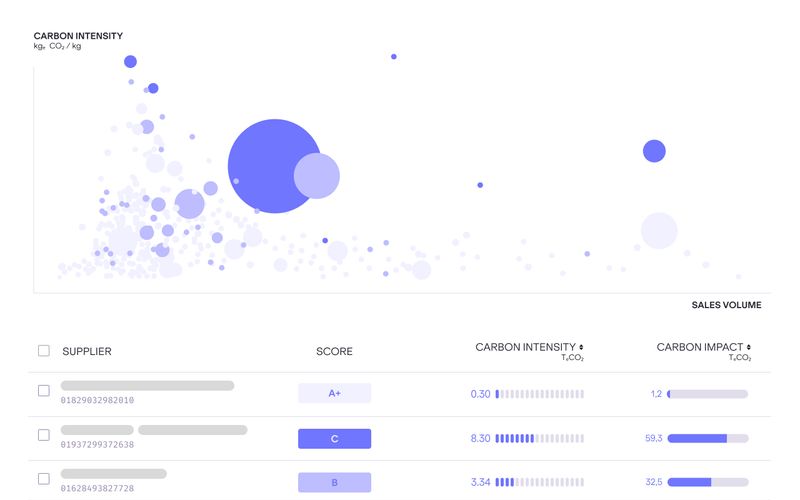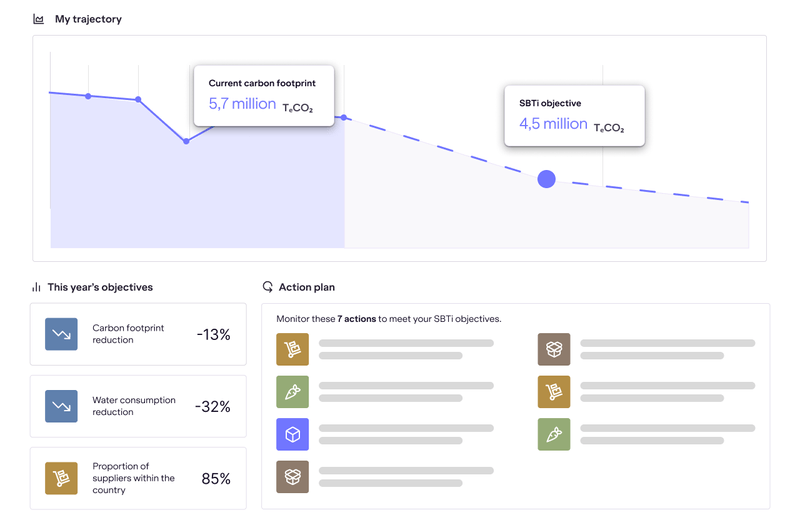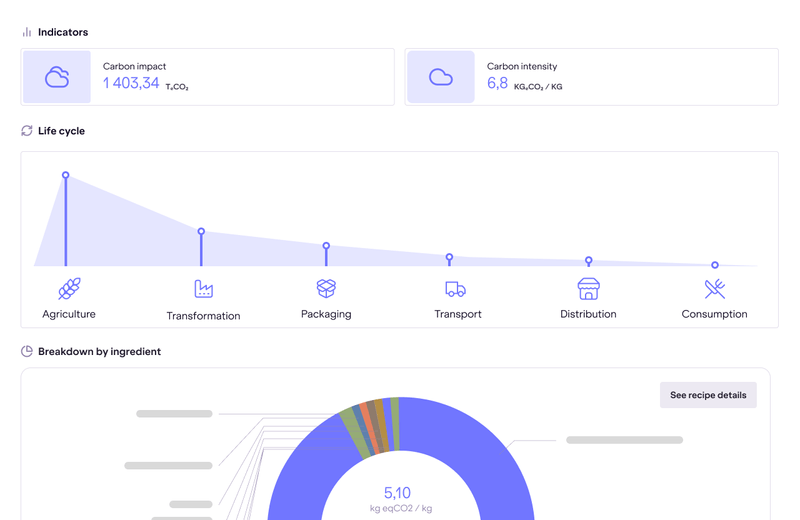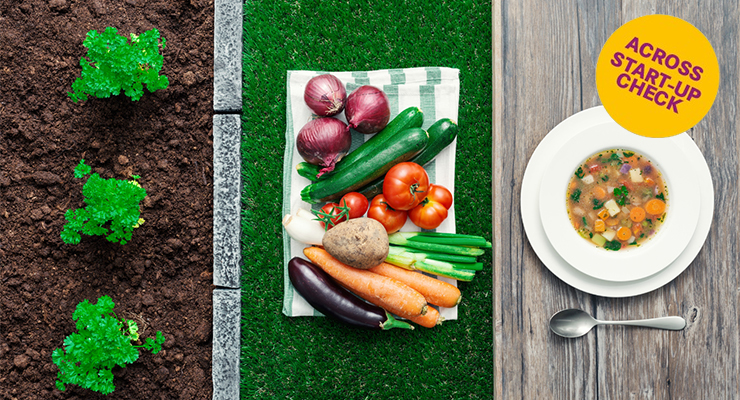Carbon Maps collects and analyses data across the entire food chain, and calculates several impact indicators, including the de facto carbon footprint, but goes a few steps further to include biodiversity impact, water use, and animal welfare. By doing so, it is the first environmental accounting platform dedicated to the food industry.
Their software-as-a-service platform helps companies calculate their environmental footprint at the product level. The company targets food brands because they design the recipes and select their suppliers.

The company´s solution collects fragmented data across all stages of the food chain—from farmers to consumers—and carries out simple and rapid calculations that translate into actionable insights. This allows reatilers to measure key environmental indicators from their suppliers, compare them with those of their competitors, and communicate them in the form of auto-generated reports.


With the help of the startup´s life cycle assessment, retailers can take into account a wide range of criteria, such as the energy required, supplies (grains), packaging, transportation, and waste. It also takes into account carbon emissions under the scopes 1, 2 and 3, which helps with integrating indirect carbon emissions from suppliers and clients. With the help of the platform, clients can get an eco-score and define objectives to reduce the environmental impact over time.

Patrick Asdaghi
Patrick Asdaghi is the Co-Founder and CEO of Carbon Maps. He is a serial entrepreneur who founded foodtechs FoodChéri and Seazon, acquired by the Sodexo Group in 2021, before co-founding Carbon Maps in December 2022.






